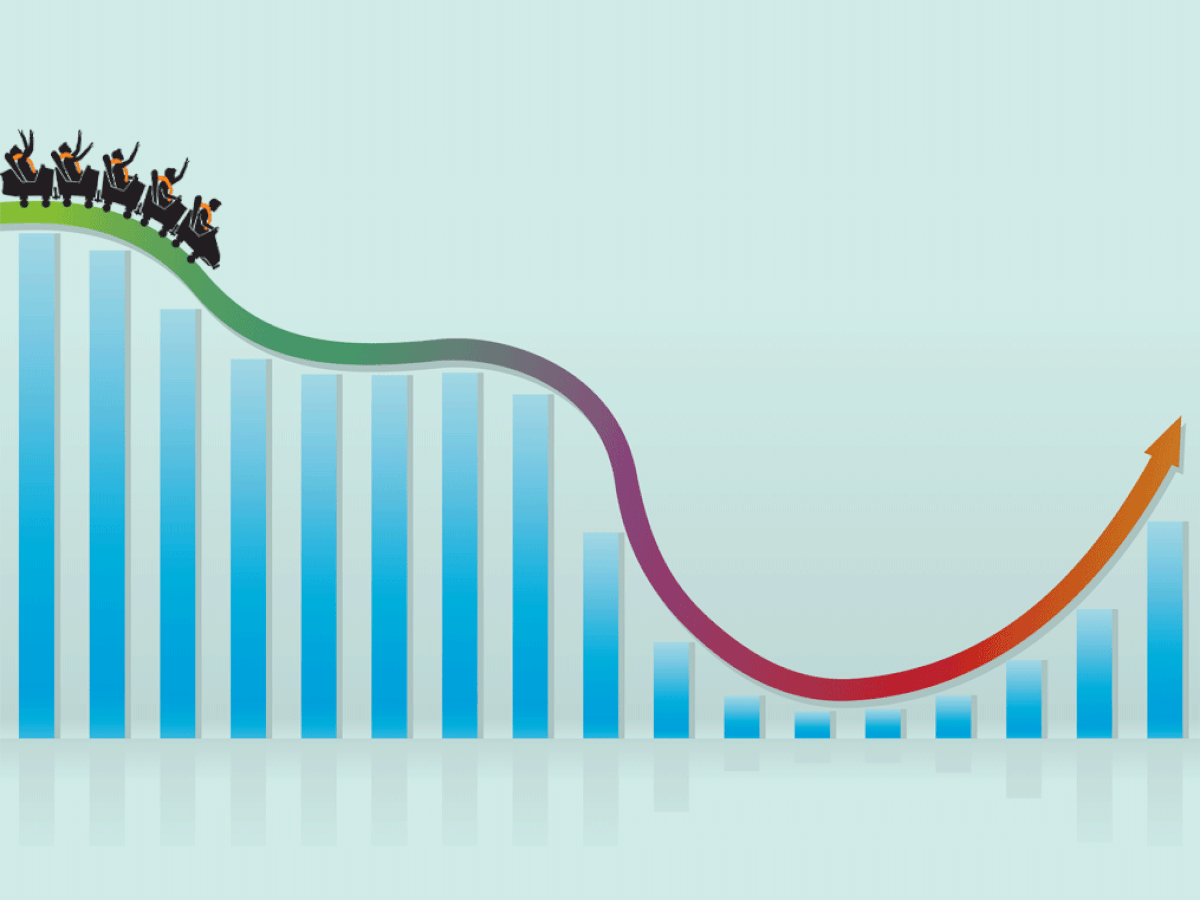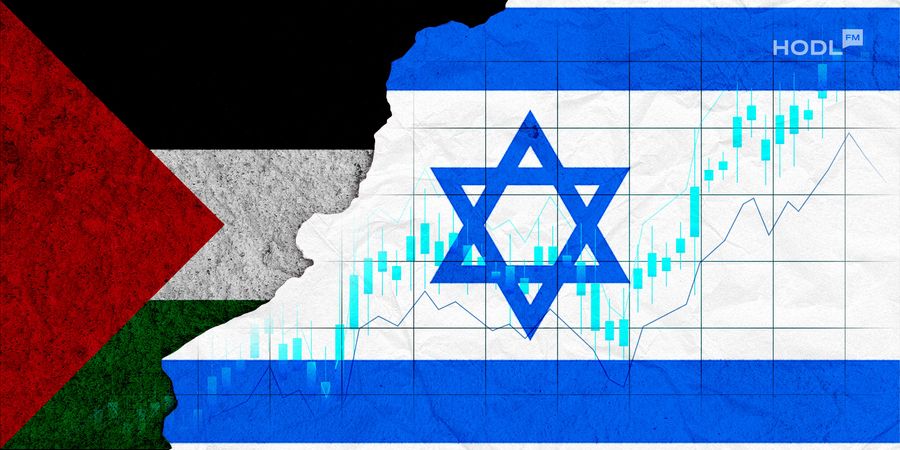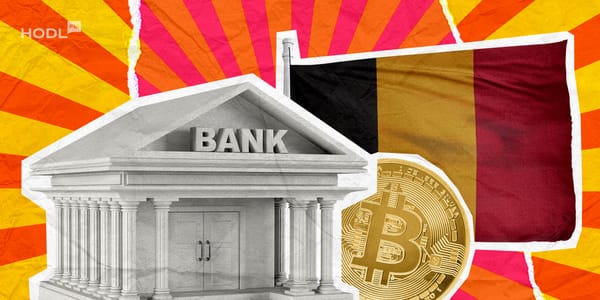The Israel-Palestine conflict, a long-standing geopolitical struggle, has repercussions far beyond the Middle East. Its impact extends into the cryptocurrencies, adding a layer of complexity to an already intricate market. As geopolitical tensions escalate and the conflict intensifies, there’s a growing curiosity about how this turmoil will influence the digital asset landscape.
In recent years, cryptocurrencies like Bitcoin (BTC) have gained attention as potential safe-haven assets during times of uncertainty. Investors speculate whether these digital coins will live up to this expectation as the Israel-Hamas conflict unfolds. The crypto community closely observes price reactions, trading volumes, and market sentiment to gauge how these assets will perform in the face of a geopolitical crisis.
This introduction sets the stage for a deeper exploration of the impact of the Israel-Palestine war on the crypto market. To understand this impact better, we’ll delve into how cryptocurrencies have responded to previous geopolitical events, investor sentiment, and expert opinions in the following sections.
Market Reaction to Geopolitical Crises
The world of cryptocurrencies, particularly Bitcoin and altcoins, has been no stranger to the impact of geopolitical crises. The recent Israel-Palestine conflict exemplifies how such events can influence cryptocurrency trends and financial markets.
Volatility and Safe Havens
Geopolitical crises like the Israel-Palestine war often trigger increased market volatility. In times of uncertainty, investors seek safe-haven assets. Bitcoin, often referred to as “digital gold,” has been viewed as a potential refuge, with its price behavior resembling that of traditional safe-haven assets like gold.
Market Behavior
During geopolitical tensions, the crypto market’s behavior depends on investor sentiment. When news of conflict breaks, we observe a short-term surge in trading volumes as investors seek to hedge their portfolios. The demand for Bitcoin, in particular, tends to rise.
Global Markets
Cryptocurrencies are part of the global financial ecosystem. Movements in traditional markets, such as oil and stock indices like the S&P 500, can spill over into the crypto space during geopolitical crises. Thus, keeping an eye on both traditional and digital asset markets is essential.
Historical Data
Historical data reveals that cryptocurrencies have shown resilience during such crises. Bitcoin’s performance during the Israel-Palestine conflict may mirror patterns seen in previous geopolitical events, like the Russia-Ukraine war, Bitcoin often bounces back after initial dips.
Expert Opinions
Crypto analysts closely monitor these situations. Their opinions influence market sentiment, and their analysis can shape investor behavior. The consensus among experts may signal the market’s future trajectory.
Bitcoin’s Short-Term Volatility
Bitcoin is renowned for its price swings. Its value can exhibit significant fluctuations during geopolitical crises over a short period. Investors turn to Bitcoin as a potential safe haven, akin to gold, to hedge against uncertainties in traditional financial markets.
The immediate aftermath of geopolitical turmoil often witnesses a spike in Bitcoin trading volumes. Investors concerned about traditional assets rush to crypto. This surge in demand can lead to rapid price movements. Investor behavior is driven by fear, uncertainty, and the desire to protect their assets.
Crypto analysts play a crucial role during these times. Their opinions and technical analysis can influence market sentiment and guide investor decisions. An analyst’s outlook can range from bullish to bearish, affecting short-term price movements.
Historical data indicates that Bitcoin often experiences short-term volatility but tends to recover and sometimes even thrive after the initial shock of a geopolitical event. This resilience highlights the maturation of the cryptocurrency market.
Expert Opinions and Alternative Views
The Israel-Palestine conflict has brought forth a range of expert opinions and alternative views regarding its impact on the cryptocurrency market. Here’s a glimpse into this multifaceted discussion
Volatility Amidst Uncertainty
One prevailing viewpoint is that the conflict introduces heightened volatility in the crypto market. The uncertainty associated with geopolitical crises often prompts investors to seek safe havens like Bitcoin and other cryptocurrencies. This influx of demand can cause short-term price fluctuations.
Crypto’s Resilience
Contrary to this, some experts argue that cryptocurrencies, particularly Bitcoin, have showcased resilience in the face of geopolitical unrest. Bitcoin’s ability to maintain stability during the initial stages of the conflict has surprised many.
Regulatory Concerns
The conflict has also stirred concerns about regulatory measures. Israeli authorities’ freezing of crypto accounts linked to groups like Hamas raises questions about the government’s involvement in controlling crypto assets during crises.
Global Market Effects
Experts point out that the impact of the Israel-Palestine war extends beyond just the crypto market. Due to the conflict, traditional financial markets, oil prices, and gold are also experiencing shifts. These changes can indirectly influence crypto trends.
The Role of Sentiment
Analysts emphasize the role of sentiment in shaping crypto markets. Public perception of the conflict can significantly affect investment decisions. Positive emotions can bolster crypto prices, while negative views can lead to sell-offs.

Market Reactions and Future Outlook
The Israel-Palestine conflict has elicited various market reactions and raised questions about its future impact on the cryptocurrency landscape. Geopolitical disputes like this have historically led to heightened volatility in financial markets, and the crypto market is no exception. As tensions escalate, investors often seek refuge in digital assets, perceiving them as safe-haven assets in times of uncertainty. This influx of demand can trigger significant price fluctuations, contributing to the cryptocurrency market’s volatility.
Moreover, governments have been paying closer attention to the potential misuse of cryptocurrencies in times of conflict. Recent reports indicate that digital currency wallets connected to groups involved in the battle received substantial sums in cryptocurrency. This has prompted regulatory scrutiny and actions, including freezing crypto accounts associated with these groups.
Looking ahead, the impact of the Israel-Palestine conflict on the crypto industry remains uncertain. While short-term volatility is expected, the crypto market has demonstrated resilience during geopolitical crises. It has the ability to operate independently of local political unrest, which contributes to its overall strength.
Regulatory changes may emerge as governments consider measures to address potential misuse of digital assets during conflicts. Additionally, investor behavior during the ongoing conflict will influence cryptocurrency prices. Positive sentiment can bolster prices, while an opposing view may lead to sell-offs.
To Sum Up
The Israel-Palestine conflict has raised concerns about its impact on the cryptocurrency market. Geopolitical conflicts, such as this ongoing crisis, have historically led to increased volatility in financial markets. The crypto market is not immune to such effects, with investors sometimes seeking digital assets as safe-haven investments during times of uncertainty. However, the future of crypto in the context of the Israel-Palestine war is complex and multifaceted.
Reports suggest that both parties involved in the conflict may be relying on cryptocurrencies for funding, potentially leading to regulatory scrutiny and actions to prevent misuse of digital assets. In the short term, this has the potential to introduce volatility and affect investor behavior.
More News from Hodl.FM:
On the other hand, the crypto market has demonstrated resilience during geopolitical crises, often operating independently of local political unrest. This resilience, coupled with positive sentiment and global demand for cryptocurrencies, may contribute to the market’s ability to withstand and recover from short-term shocks.
While the Israel-Palestine conflict may introduce short-term volatility and regulatory challenges, the long-term future of crypto remains promising. Its role as a global digital asset class and its increasing integration into the financial landscape suggest that it will continue to evolve and adapt, potentially playing a significant role in the ongoing conflict and global financial markets.
Disclaimer: All materials on this site are for informational purposes only. None of the material should be interpreted as investment advice. Please note that despite the nature of much of the material created and hosted on this website, HODL FM is not a financial reference resource and the opinions of authors and other contributors are their own and should not be taken as financial advice. If you require advice of this sort, HODL FM strongly recommends contacting a qualified industry professional.








